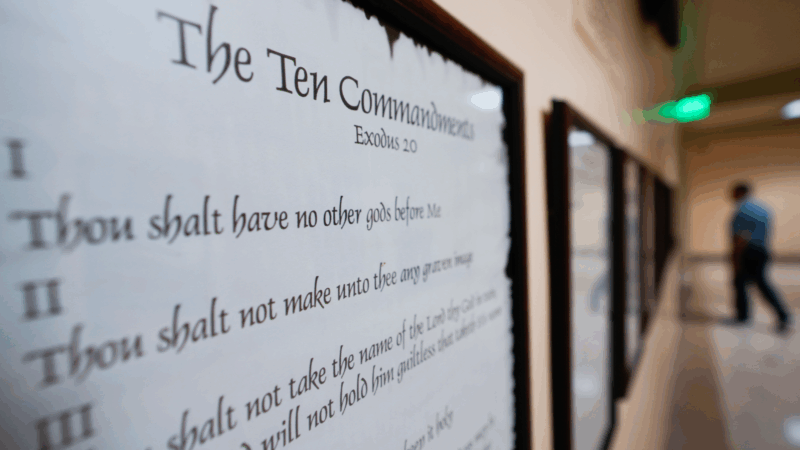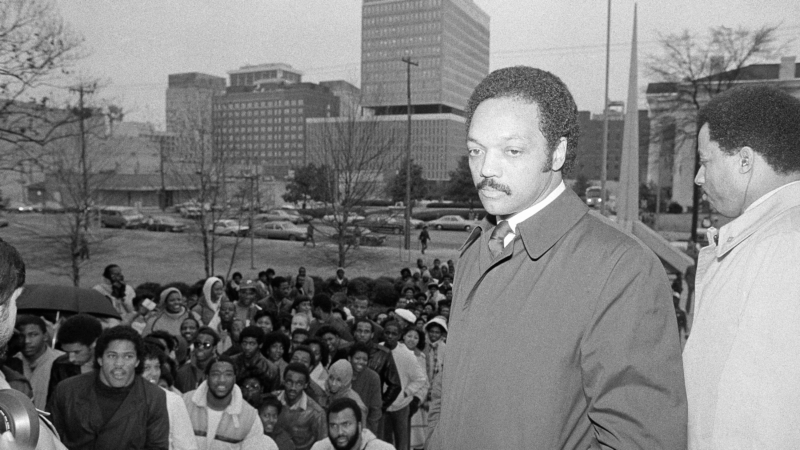Justice Department Knew 2018 Border Policy Would Separate Children From Families
By Dustin Jones
Former U.S. Attorney General Jeff Sessions knew his “zero tolerance” policy on illegal entry along the Southwest border in 2018 would separate children from their parents, a watchdog office reported on Thursday. Despite warnings that the government couldn’t care for the children, he pushed forward with the policy. As a result, more than 3,000 children were separated from their families.
Department of Justice Inspector General Michael Horowitz released a critical review which found the department “failed to effectively prepare for and manage the policy’s implementation.”
Trump administration officials “significantly underestimated [the policy’s] complexities and demonstrated a deficient understanding of the legal requirements related to the care and custody of separated children.”
The review concludes that the Justice Department’s “single-minded focus on increasing immigration prosecutions came at the expense of careful and appropriate consideration of the impact of family unit prosecutions and child separations.”
The administration had told federal prosecutors in 2017 to prioritize immigration prosecutions. Throughout the year, the DOJ and the Department of Homeland Security discussed possible policy changes, including criminally prosecuting “family unit adults” and separating them from their children, the report said.
At the same time, the Western District of Texas U.S. Attorney’s Office had begun prosecuting adults in certain instances, even if it resulted in separation from their children. It was referred to as the El Paso Initiative. Prosecutors and judges noted concerns about the whereabouts of the children of approximately 280 broken families.
Following the perceived success of the El Paso Initiative, Sessions’ policy went into effect on April 6, 2018.
“I have put in place a ‘zero tolerance’ policy for illegal entry on our Southwest border,” Sessions said one month later in San Diego. “If you cross this border unlawfully, then we will prosecute you. It’s that simple. If you are smuggling a child, then we will prosecute you and that child will be separated from you as required by law.”
Days after his speech in San Diego, U.S. attorneys along the border raised concerns about family separations as well as the whereabouts of children, the review notes. Sessions promised additional resources, but instructed them to stay the course.
The review says Sessions had grossly underestimated the legal and logistical challenges accompanying his policy. His department also failed to effectively coordinate with other agencies, including the U.S. Marshal’s Service, who were given no advanced notice, the review said. The USMS told the DOJ there would be resource shortages, which would impact the safety of the public, courthouses, detention facilities and staff.
Federal judges and other stakeholders along the border grew concerned as the courts became burdened with cases. On June 20, 2018, President Trump issued an executive order that curtailed the policy, replacing it with a similar one that kept families together. The damage had already been done.
Denise Bell, researcher for refugee and migrant rights at Amnesty International USA, called on the incoming Biden administration to make families whole and provide pathways for them to obtain legal status.
“This report reinforces what we already knew: the cruelty was the point and the government ripped families apart intentionally to keep families from seeking safety here,” Bell said in a statement. “This utter disregard for people’s lives caused irreparable harm.”
US military airlifts small reactor as Trump pushes to quickly deploy nuclear power
The Pentagon and the Energy Department have airlifted a small nuclear reactor from California to Utah, demonstrating what they say is potential for the U.S. to quickly deploy nuclear power for military and civilian use.
How Nazgul the wolfdog made his run for Winter Olympic glory in Italy
Nazgul isn't talking, but his owners come clean about how he got loose, got famous, and how they feel now
Court clears way for Louisiana law requiring Ten Commandments in classrooms to take effect
The 5th U.S. Circuit Court of Appeals has cleared the way for a Louisiana law requiring displays of the Ten Commandments in public classrooms to take effect.
From cubicles to kitchens: How empty offices are becoming homes
Many U.S. cities have too many office buildings and not enough homes. Developers are now converting some old offices into apartments and condos, but it's going slowly.
Opinion: The enduring dignity of Jesse Jackson
Rev. Jesse Jackson died this week at age 84. NPR's Scott Simon remembers covering Jackson's 1984 presidential campaign in Mississippi.
A huge study finds a link between cannabis use in teens and psychosis later
Researchers followed more than 400,000 teens until they were adults. It found that those who used marijuana were more likely to develop serious mental illness, as well as depression and anxiety.





